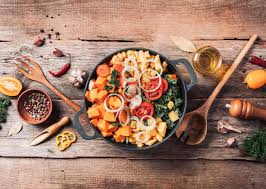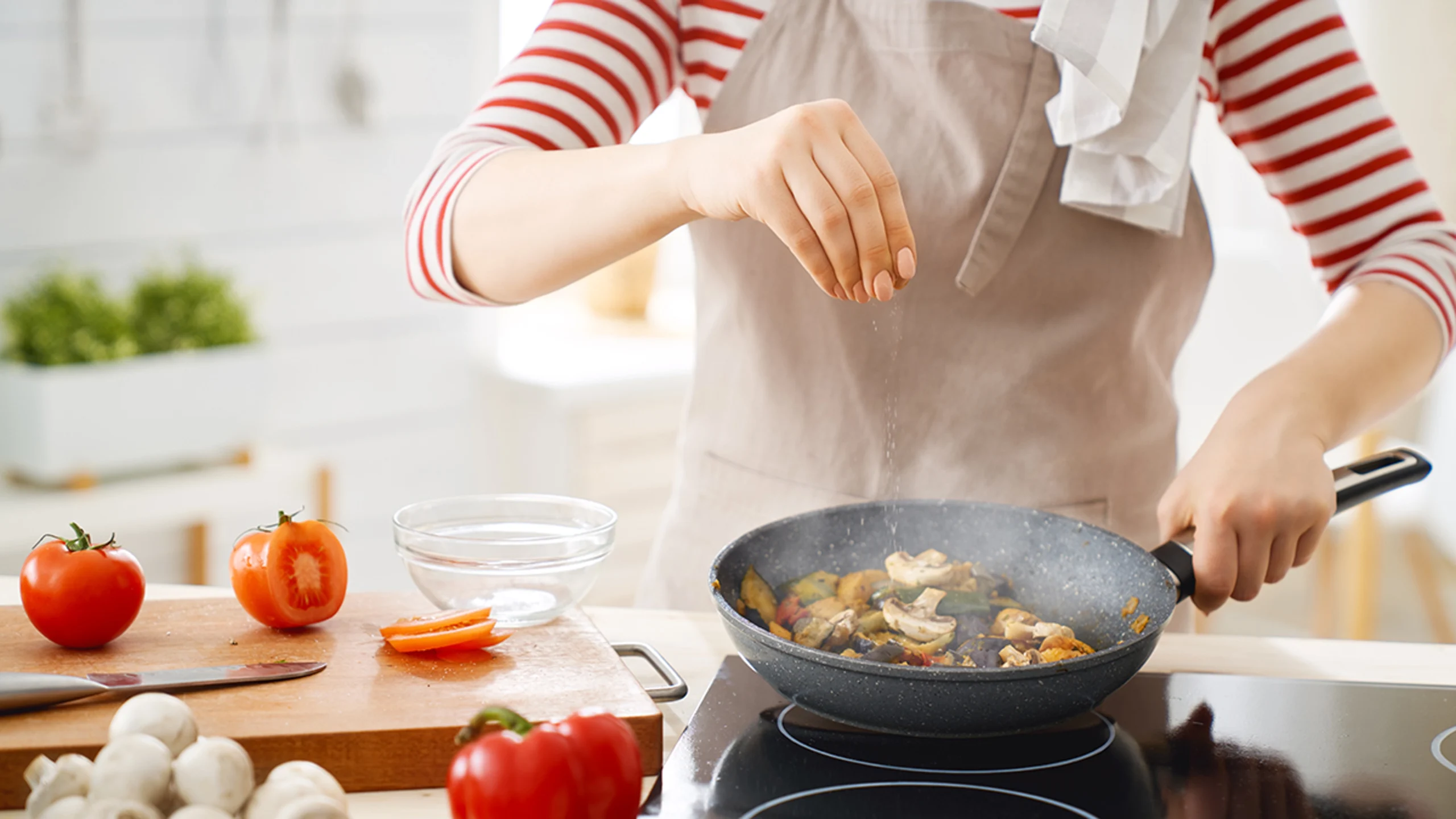Table of Contents
ToggleZero waste cooking tips for sustainable meal prep in 2025
Zero-Waste Cooking Tips: Sustainable Meal Prep for Home Chefs
Introduction
Did you know that one-third of all food produced globally is wasted? Much of this waste happens right in our kitchens—whether it’s forgotten leftovers, spoiled produce, or unused scraps. The good news? Small changes in how we shop, cook, and store food can make a massive difference.
By adopting zero-waste cooking habits, you can:
✔ Save money by using every bit of food you buy
✔ Reduce your environmental impact by cutting landfill waste
✔ Discover creative new recipes by transforming scraps into delicious meals“By adopting zero-waste cooking habits, you can save money and reduce waste. For more Kitchen related knowledge, check out
This guide will walk you through practical, easy-to-follow tips to help you build a sustainable kitchen routine—one meal at a time.
1. Plan Your Meals Around What You Already Have
Why Meal Planning Reduces Waste
When we are talking about zero waste cooking tips for sustainable meal prep in 2025 then we have to remember the following :
Before heading to the grocery store, check your fridge, freezer, and pantry. Many ingredients get forgotten and eventually spoil, leading to unnecessary waste. By planning meals around what you already own, you:
-
Avoid overbuying
-
Use up ingredients before they expire
-
Save money by reducing impulse purchases
How to Meal Plan Effectively
-
Take inventory – List what you already have and prioritize using perishables first.
-
Build flexible meals – Choose recipes that allow ingredient swaps (e.g., stir-fries, soups, grain bowls).
-
Use meal-planning apps – Apps like “Too Good To Go” and “Olio” help find discounted surplus food in your area.

2. Store Food Properly to Make It Last Longer
Best Food Storage Practices
Improper storage leads to premature spoilage. Here’s how to extend the life of your groceries:
Vegetables & Herbs
-
Leafy greens – Store in airtight containers with a damp paper towel.
-
Root vegetables (carrots, beets) – Remove greens and keep in a cool, dark place.
-
Fresh herbs – Place stems in a jar of water (like flowers) or wrap in a damp cloth.
Fruits
-
Berries – Soak in a vinegar-water solution (1:3 ratio) to prevent mold.
-
Avocados & bananas – Store away from other produce to slow ripening.
Leftovers & Pantry Items
-
Use airtight containers – Glass jars or BPA-free plastic work best.
-
Label & date everything – Avoid mystery leftovers going bad.
-
Switch to reusable wraps – Beeswax wraps or silicone lids reduce plastic waste.

3. Get Creative with Scraps (Zero-Waste Recipes!)
How to Use Every Part of Your Food
Instead of tossing scraps, repurpose them into delicious meals:
Veggie Scraps → Homemade Broth
Save onion skins, carrot tops, celery ends, and herb stems in a freezer bag. Once full, simmer with water for a flavorful zero-waste broth.
Stale Bread → Croutons or Breadcrumbs
-
Croutons – Toss cubed bread with olive oil, salt, and herbs, then bake until crispy.
-
Breadcrumbs – Pulse in a food processor and store for coatings or toppings.
Citrus Peels → Zest & Infusions
-
Dry peels for seasoning or tea.
-
Infuse vinegar for DIY cleaning solutions.

Explore our top recommendations on our small kitchen storage
4. Compost What You Can’t Cook
Why Composting Matters
Even with zero-waste efforts, some scraps (like eggshells or coffee grounds) aren’t edible. Composting keeps them out of landfills, where they’d release methane—a potent greenhouse gas.
Easy Ways to Start Composting
-
Countertop bin – Collect scraps in a small compost pail (empty it daily to avoid odors).
-
Outdoor compost pile – Layer greens (food scraps) and browns (leaves, paper) for healthy decomposition.
-
Municipal programs – Many cities offer curbside compost pickup.

5. Batch Cook and Freeze Leftovers
How Batch Cooking Reduces Waste
Cooking in bulk:
-
Saves time and energy (fewer cooking sessions).
-
Prevents last-minute takeout (ready-made meals on busy nights).
-
Minimizes ingredient waste (use up everything at once).
Freezing Tips for Maximum Freshness
-
Cool food completely before freezing to prevent ice crystals.
-
Use portion-sized containers (mason jars, silicone bags).
-
Label with name and date (follow the “first in, first out” rule).

You can also read our most popular article on Hot 2025 kitchen trends revealed!

Final Thoughts: Small Steps, Big Impact
Adopting zero-waste cooking habits doesn’t require a complete lifestyle overhaul. Start with one or two changes—like meal planning or composting—and gradually incorporate more. Over time, you’ll:
-
Waste less food
-
Save money
-
Contribute to a healthier planet
Ready to take the next step? Pick one tip from this guide and try it this week!





